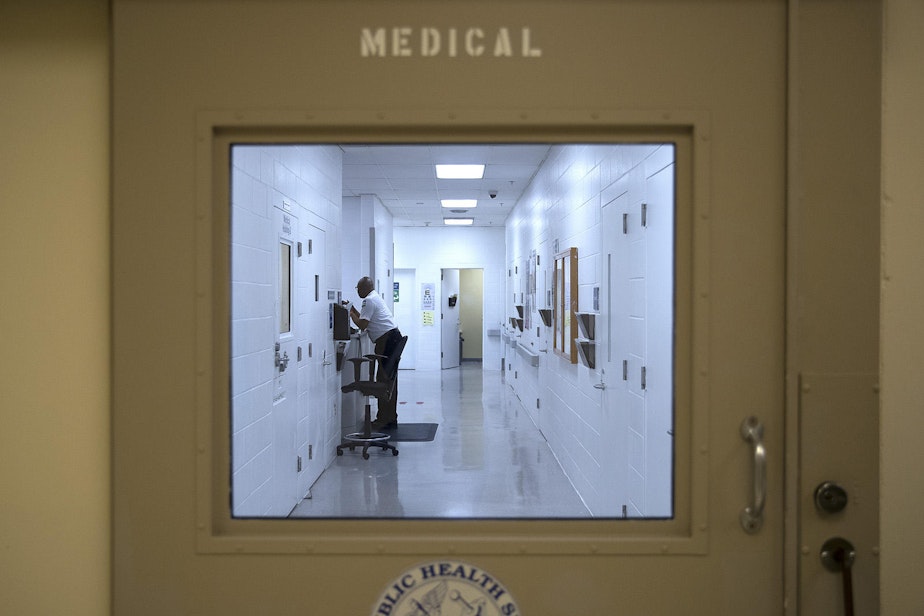Washington man dies at Tacoma ICE facility, days after human rights group visit

The Tacoma Fire Department responded to an emergency call Sunday morning from a nurse at the Northwest ICE Processing Center. They had found one of the detainees lying face down.
“He came in to our facility on Tuesday, we had him in our medical housing unit. He's withdrawing from fentanyl,” the nurse told emergency responders over the phone. “Just now we found him face down in his room. He vomited. He's not responsive, but he is breathing.”
The Tacoma Police Department confirms they received the emergency call at 7 a.m. Sunday and handed it off to the fire department.
Immigration and Customs Enforcement reports the detainee, 36-year-old Jose Manuel Sanchez-Castro, died later that day at the Tacoma facility. He was the second death at the Tacoma facility this year and the fourth person to die at the processing center since 2006.
RELATED: Sen. Murray pushes for outside investigation into Tacoma ICE facility
Sponsored
Sanchez-Castro was first arrested and opted to leave the U.S. in 2009 when he was 21 years old. Over the following years he had three other run-ins with the law. In the most recent arrest, he was convicted of manufacturing and delivery of amphetamine and or methamphetamine in 2016, according to ICE.
“First and foremost, I extend my condolences to Mr. Sanchez-Castro’s family and loved ones,” U.S. Rep. Pramila Jayapal said in a public statement.
After the death of detainee Charles Leo Daniel earlier this year, Japapal, a Washington Democrat, inspected the Tacoma facility. She was not permitted to speak directly with detained people, but she said she still remains concerned about living conditions at the processing center.
“Detained people at the facility have consistently been forced to resort to hunger strikes to protest conditions, including allegations of medical neglect, unsafe food, and unsanitary conditions among other complaints,” she said.
RELATED: Video shows heavily armed guards detaining hunger strikers at Tacoma ICE center after using tear gas
Sponsored
According to the nurse, Sanchez-Castro arrived at the facility on Oct. 22. That was also the last day representatives of the Organization of American States, a treaty group that includes the U.S., visited with detainees in the facility at the invitation of the federal government.
Leading up to that visit, OAS representatives met with advocates, federal officials, state agencies, and the Washington Attorney General’s Office, trying to learn more about the facility and its conditions.
The same concerns raised by Rep. Jayapal were expressed to Roberta Clarke and members of the Inter-American Commission on Human Rights, the human rights arm of the Organization of American States.
The group visited the Tacoma center to follow up on the living condition of 14 people detained at the facility, who were selected to serve as examples of how detainees were treated.
The investigation began in 2020 when concerns were raised about the sanitary conditions of the facility, as well as access to adequate health care, and a speedy immigration trial party born out of Covid-19 concerns.
Sponsored
In their visit, the human right’s commission was only able to see the common spaces at the facility, and were not able to view the intimate spaces where people were living, Clarke said. That included rooms like the one Sanchez-Castro was held in the medical wing before he died.
“It was a guided walkthrough, and we saw what we were shown, but we did not see the spaces in the facility where people are habitually living with them, in those spaces,” Clarke told KUOW.
In a press release after their visit, the commission wrote that detainees and the families of those detainees run into ICE and GEO Group “mutually deferring accountability” for reports of retaliation, verbal aggression, and racism. They want the federal government to make sure it protects the rights of the 14 selected detainees, and everyone else who is processed at the center.



